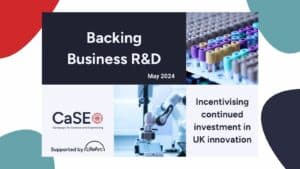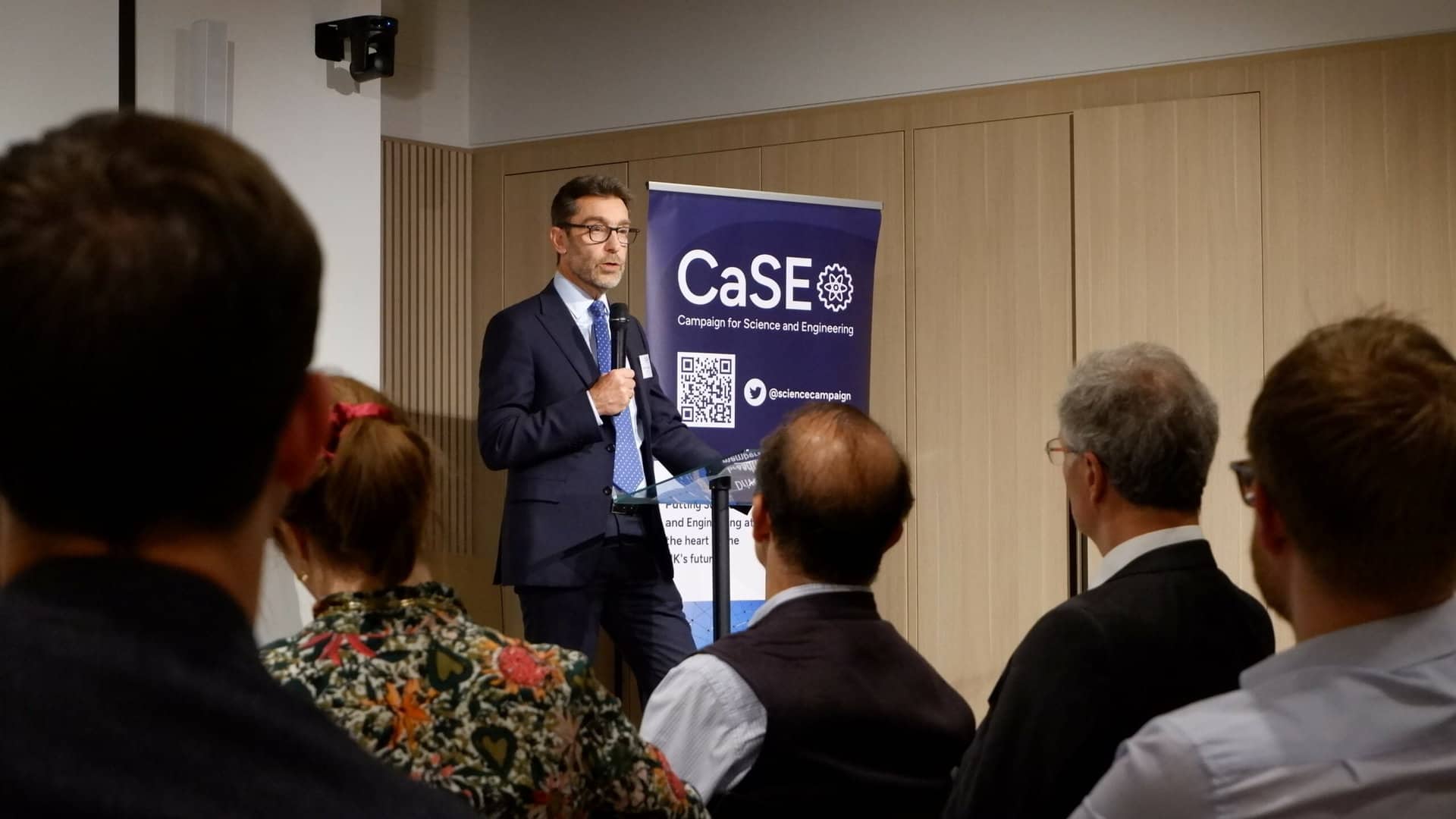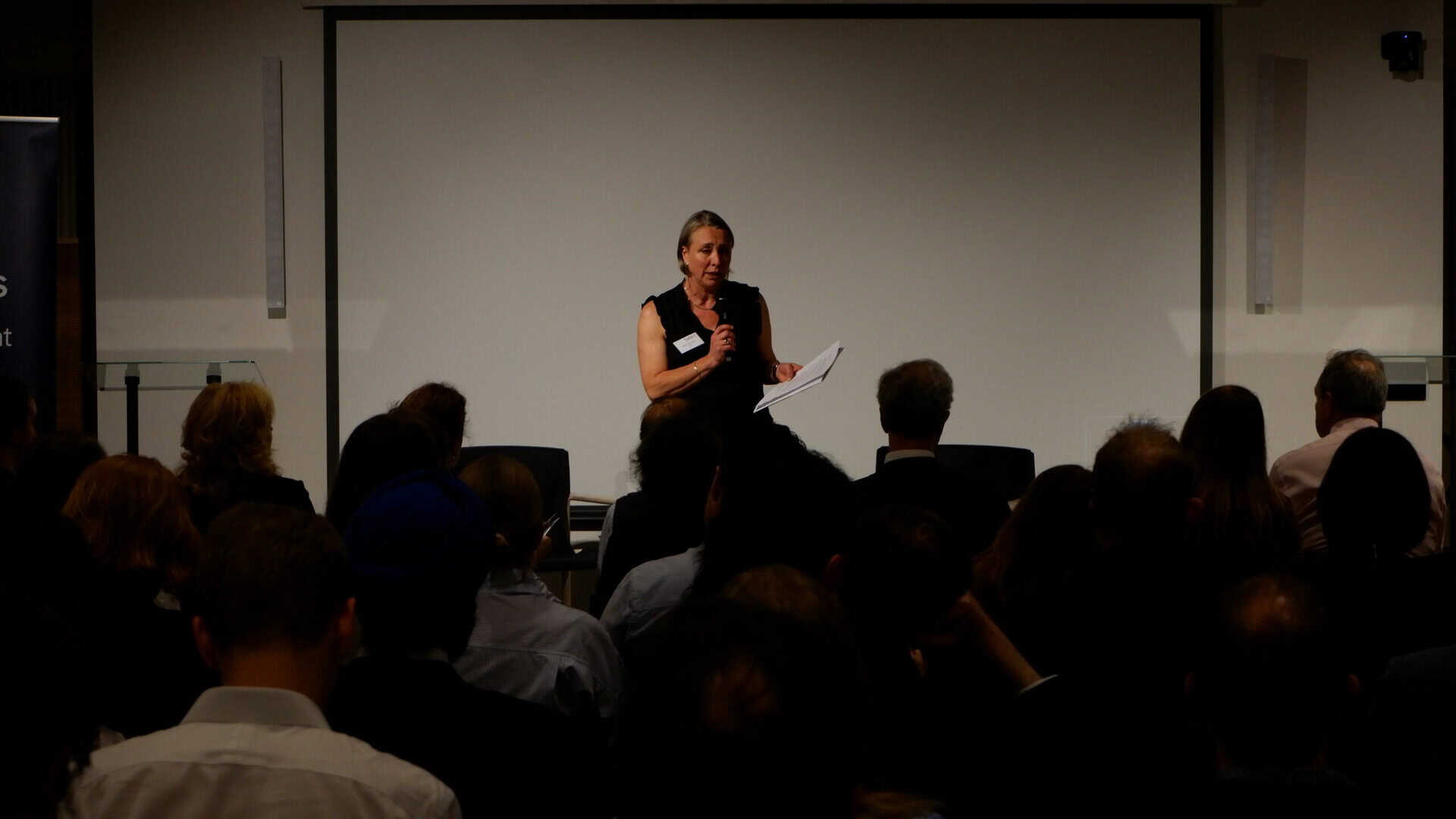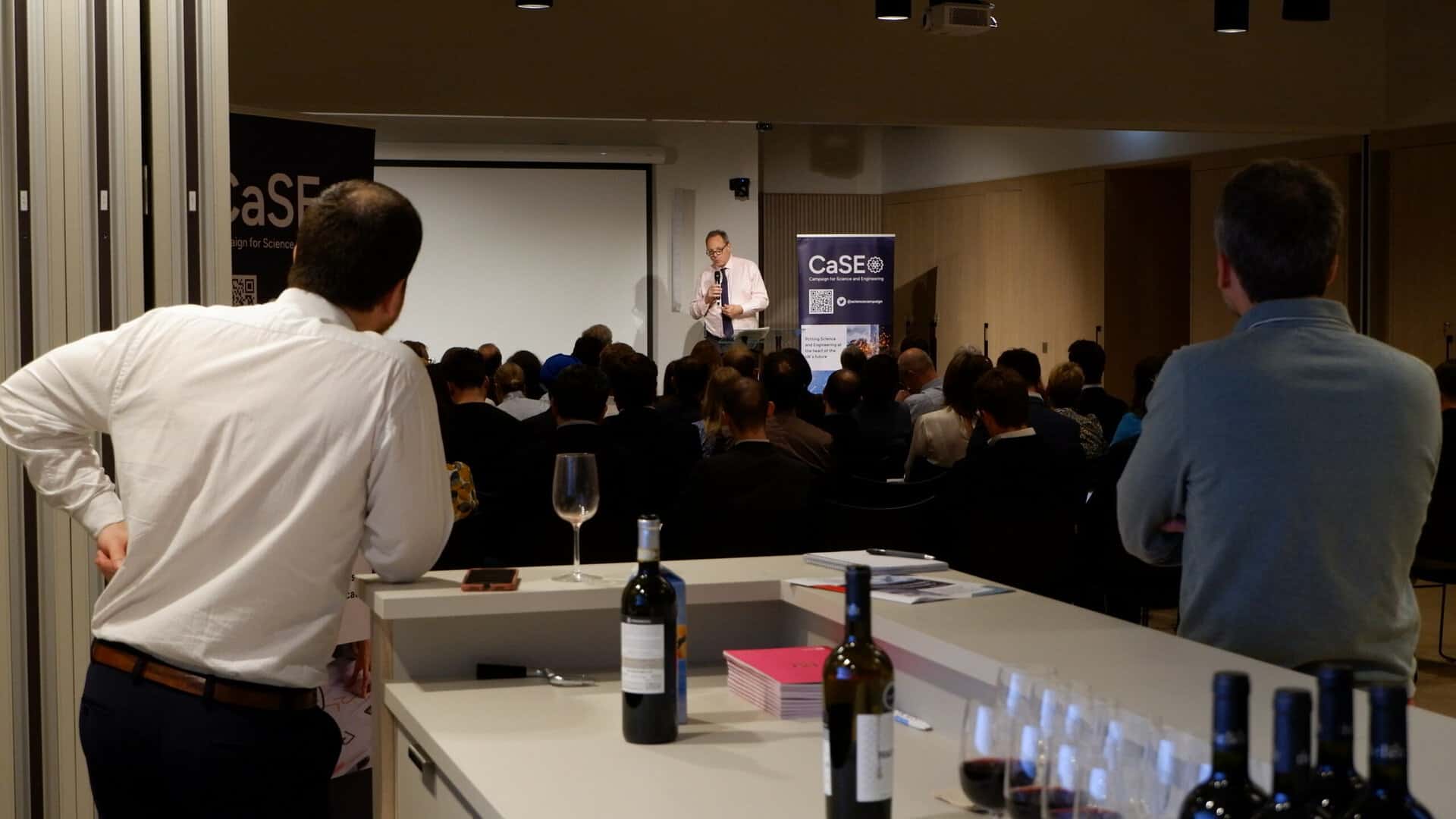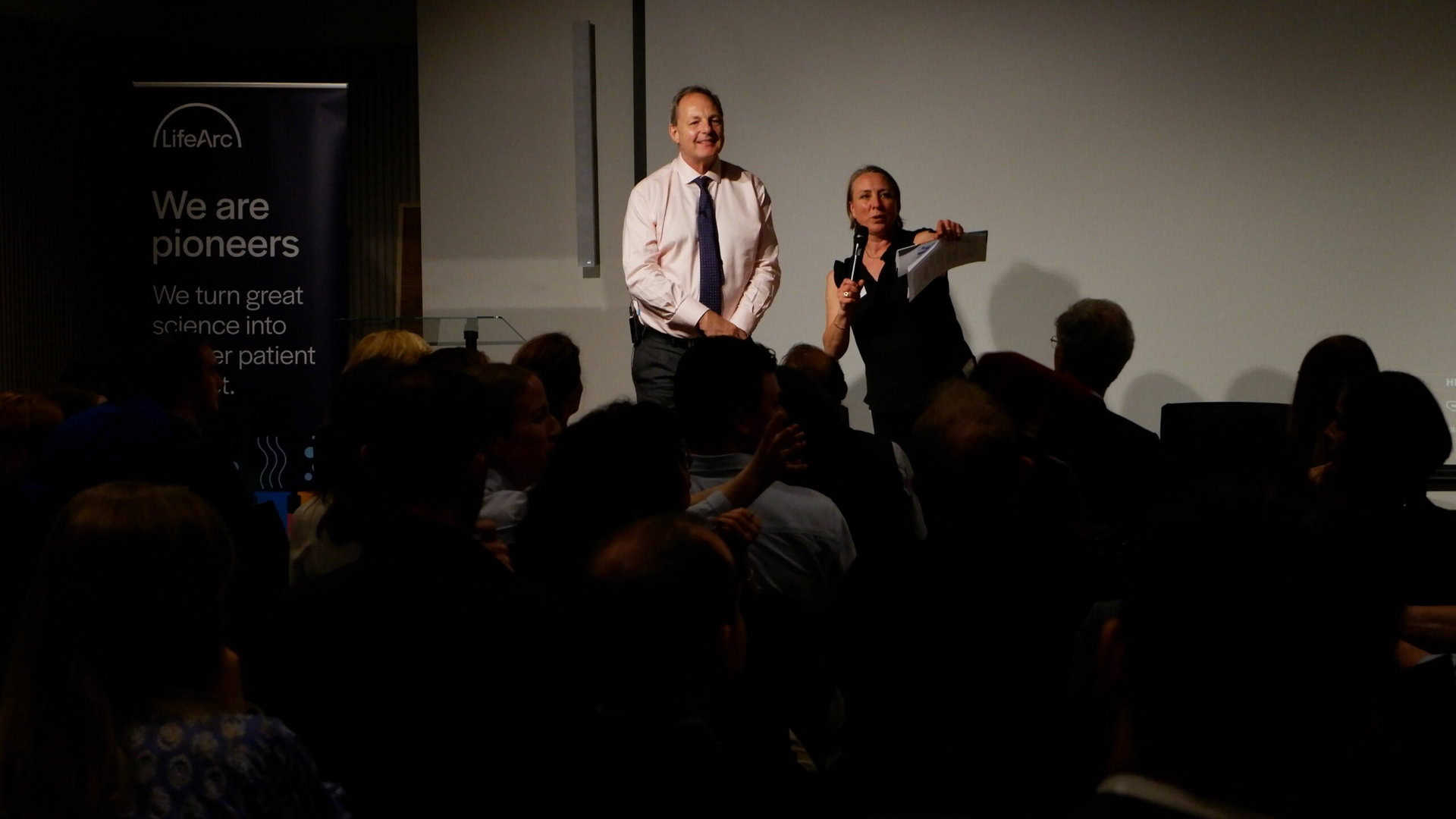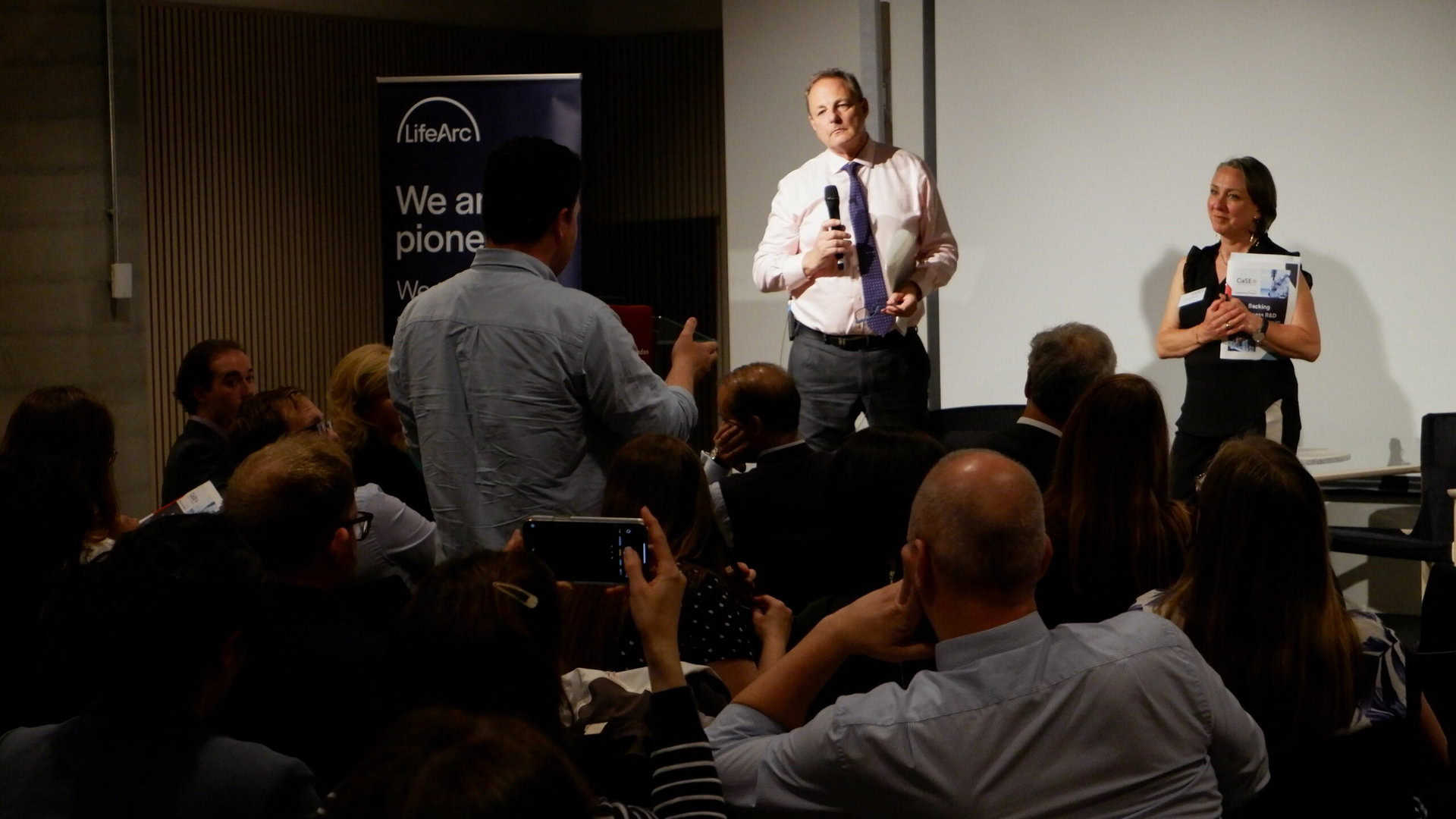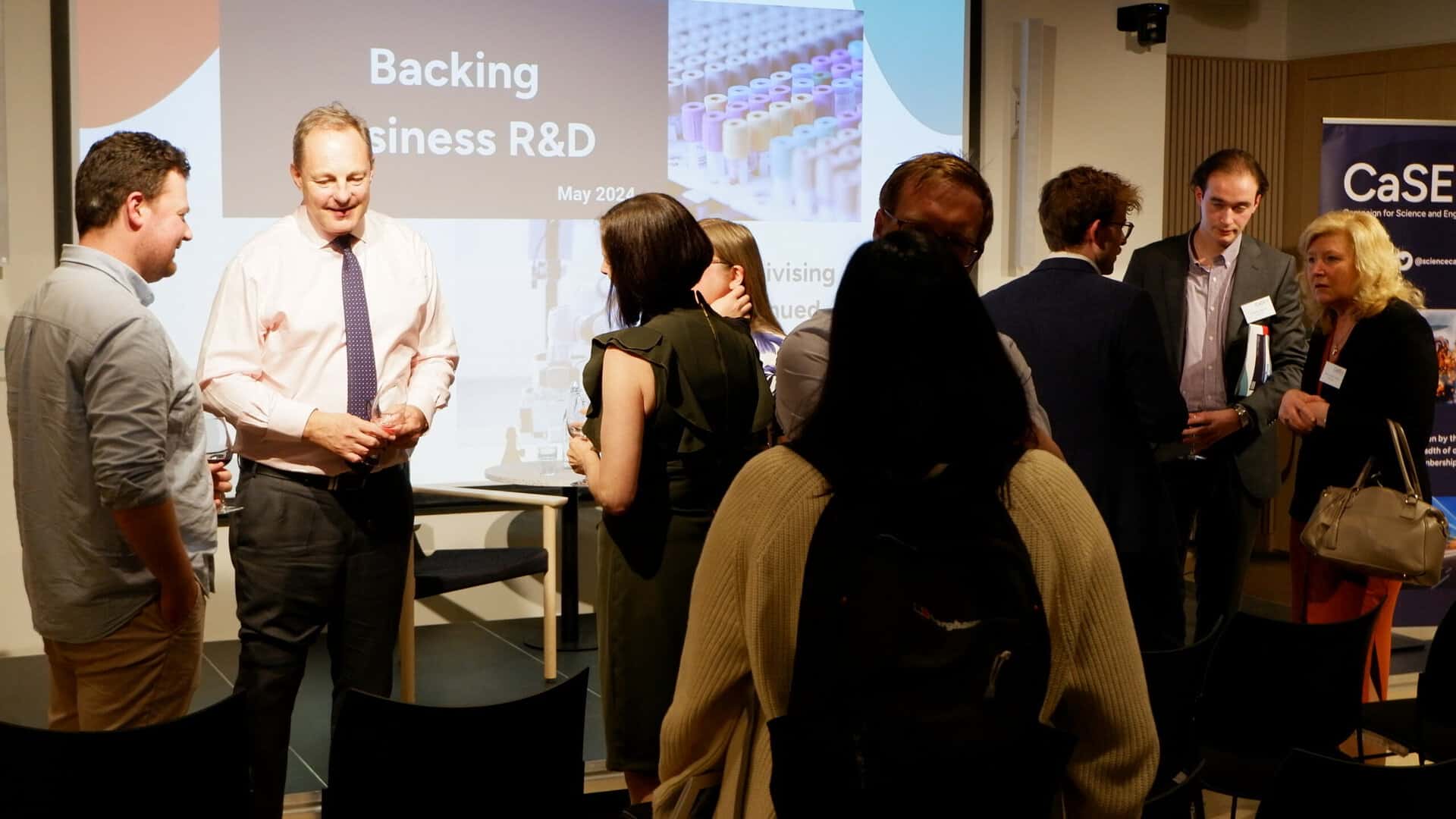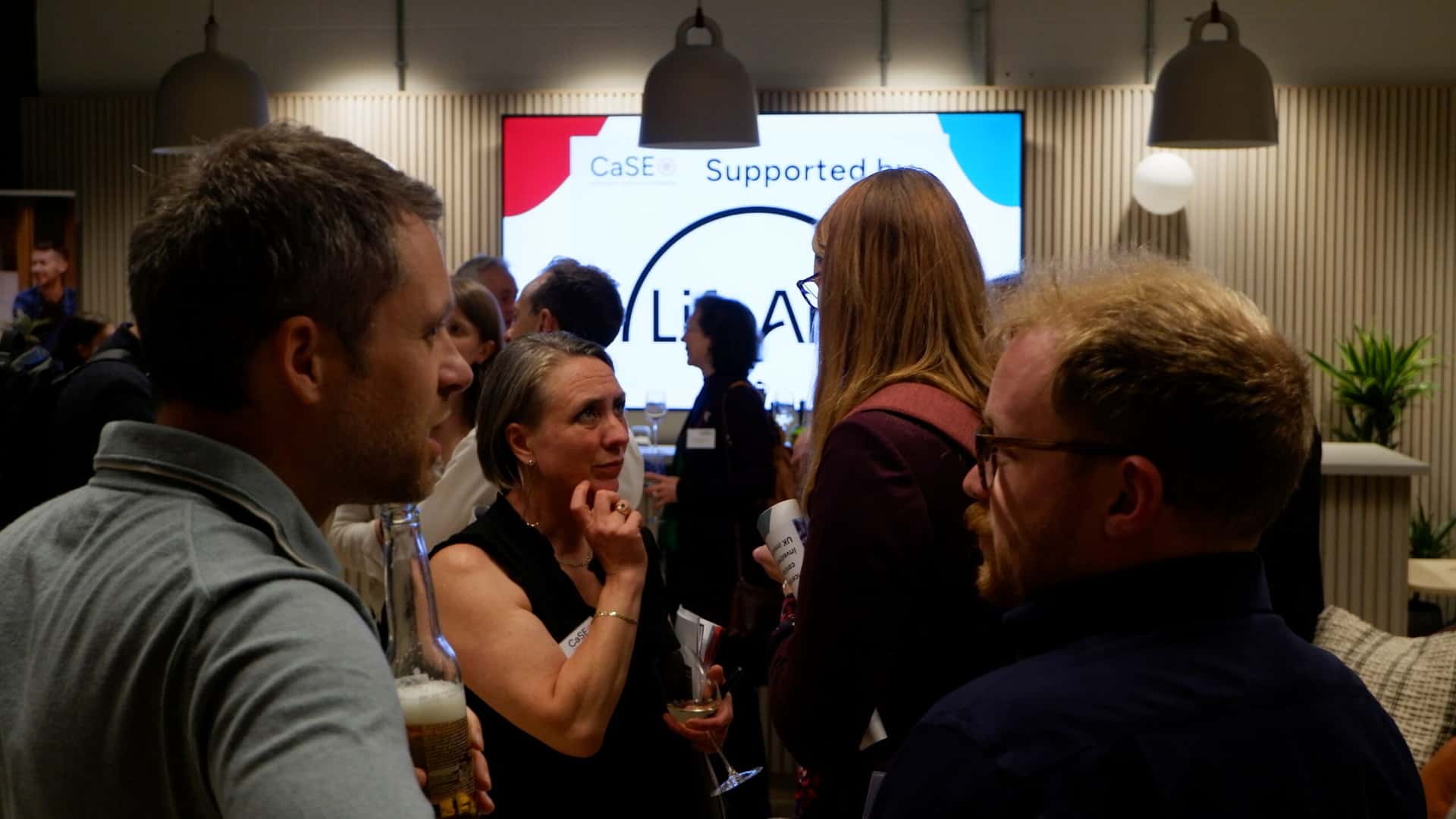Summary
CaSE Executive Director Dr Alicia Greated opened the event by welcoming everyone to the Impact Hub before introducing the speakers.
Stéphane Maikovsky, Interim CEO, LifeArc – opening remarks
Stéphane Maikovsky spoke about LifeArc’s mission to ensure that R&D gets translated into impact for patients and that to do that requires every part of the R&D ecosystem to succeed. He noted that businesses are a vital and significant part of this.
He said that this is why LifeArc sponsored the report by CaSE. As the prospect of a new UK government looms, it is important to ask whether the fundamentals of our R&D ecosystem are working as they should.
He noted that while there is certainly a lot to celebrate – from world-class university research and a thriving charity sector to some of the world’s top R&D-investing companies – there is evidence that the UK is not as attractive as it could be for business R&D.
Stéphane concluded with a call to arms, asking attendees in the room to engage with the report and work with CaSE, LifeArc and the rest of the R&D community to ensure the UK really does become a go-to destination for companies looking to invest in R&D.
Dr Alicia Greated, Executive Director, CaSE – opening remarks
CaSE Executive Director Dr Alicia Greated said that the support CaSE receives from its members is crucial in ensuring CaSE can contribute to the debate on major issues facing the R&D community and encouraged continued engagement with members.
Alicia highlighted the timeliness of the report, particularly in light of the stark statistic that business investment in the UK has been stagnating. She stressed that it is vital not to lose this investment, and that we must make the UK as attractive as possible for businesses. She noted that, in addition to more funding support, the report also proposes recommendations that focus on ways of working as well as the importance of strategic thinking.
Importantly, Alicia highlighted that the public also backs business R&D. CaSE’s latest opinion polling suggests that the public connect business-led R&D and economic growth. This clearly presents an opportunity that the R&D sector should capitalise on.
Alicia concluded by thanking CaSE members, sponsors and the project expert Advisory Group, whose support and input has been crucial, and without which, this work would not have been possible.
Dr Dave Smith, National Technology Adviser, DSIT – keynote address
Dr Dave Smith stated that it is vital to incentivise continued investment into UK innovation. He noted that many of the attendees in the room rightly care about the environment in which they conduct innovation activities.
Dave noted that the Government’s role is to “let people be brilliant”.
Dave celebrated that there is the systematic voice of academia in Government. Every department has a Chief Scientific Adviser and coordinating all of that the Government Chief Scientific Adviser. However, he added that what is also needed is the systematic voice of private sector R&D into Government policy. He suggested that CaSE’s report can help do that.
Dr Dave Smith reflected on the role of Government in supporting research and innovation. His view is that science and technology create benefits when they are available as a product. Therefore, it is vital that research and innovation endeavours are supported on their way to becoming products.
He noted that the UK has a strong science base, and there is generally good support for earlier stages of research and innovation, including the discovery phase and spin-outs. While this is vital, it is a long way from being sufficient. Harking to one of CaSE’s recommendations, Dave emphasised that in order to reap the benefits it is important to follow through and support the full pathway, and do this consistently.
Dave provided a whistlestop tour of Government policy to support research and innovation over the years. This has involved a range of initiatives and strategies that have not always provided consistency. But Dave noted that what has been consistent is the continuity in funding mechanisms.
Dave also noted that the UK excels in many areas of science and technology, citing the energy transition and artificial intelligence. He noted that these present an enormous opportunity for the UK, for example in terms of start-ups and inward investment. However, he stressed that these benefits are not a given.
He concluded by providing an overview of the 10 pillars of the Science and Technology Framework, and noted that this is a fundamental and underpinning approach to developing disruptive tech.
The discussion was then opened to the floor, where Dave took a series of questions from attendees.
The Q&A covered topics such as how to create better incentives for procurement officers and regulators to take reasonable risk for innovation; how to support regions to deliver local policies for research and innovation given constraints on funding; and what more can be done to enhance collaboration, including between businesses and regulators.
